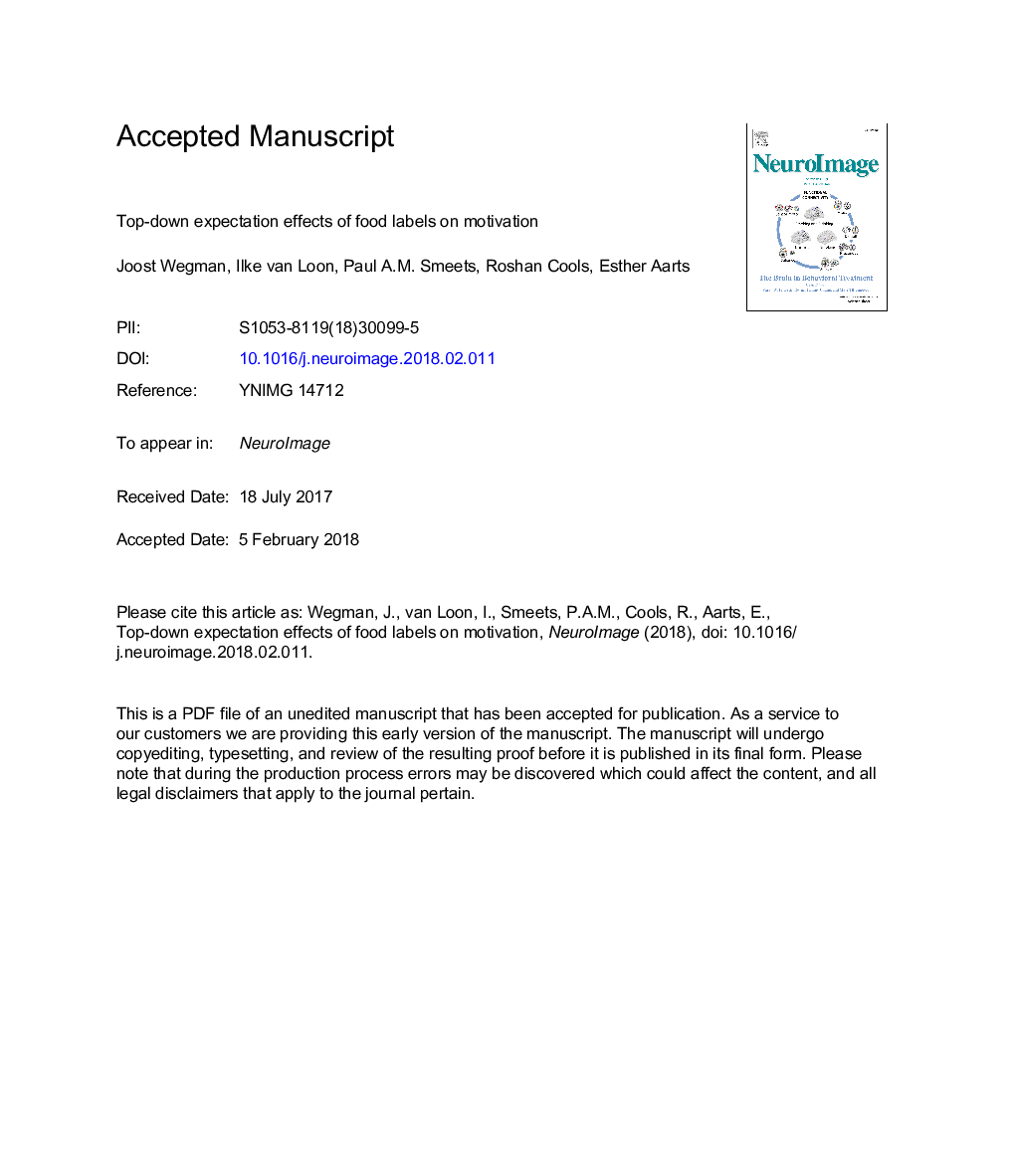| کد مقاله | کد نشریه | سال انتشار | مقاله انگلیسی | نسخه تمام متن |
|---|---|---|---|---|
| 8686951 | 1580837 | 2018 | 52 صفحه PDF | دانلود رایگان |
عنوان انگلیسی مقاله ISI
Top-down expectation effects of food labels on motivation
ترجمه فارسی عنوان
اثرات انتظار بالا از برچسب های مواد غذایی بر انگیزه
دانلود مقاله + سفارش ترجمه
دانلود مقاله ISI انگلیسی
رایگان برای ایرانیان
کلمات کلیدی
موضوعات مرتبط
علوم زیستی و بیوفناوری
علم عصب شناسی
علوم اعصاب شناختی
چکیده انگلیسی
Labels on food packages inform our beliefs, shaping our expectations of food properties, such as its expected taste and healthiness. These beliefs can influence the processing of caloric rewards beyond objective sensory properties and have the potential to impact decision making. However, no studies, within or beyond the food domain, have assessed how written information, such as food labels, affect implicit motivation to obtain rewards, even though choices in daily life might be strongly driven by implicit motivational biases. We investigated how written information affects implicit motivation to obtain caloric rewards in healthy young adults. We used food labels (high- and low-calorie), associated with an identical fruit-flavored sugar-sweetened beverage, to study motivation for caloric rewards during fMRI. In a joystick task, hungry participants (Nâ¯=â¯31) were instructed to make fast approach or avoid movements to earn the cued beverages. Behaviorally, we found a general approach bias, which was stronger for the beverage that was most preferred during a subsequent choice test, i.e., the one labeled as low-calorie. This behavioral effect was accompanied by increased BOLD signal in the sensorimotor cortex during the response phase of the task for the preferred, low-calorie beverage compared with the non-preferred, high-calorie beverage. During the anticipation phase, the non-preferred, high-calorie beverage label elicited stronger fMRI signal in the right ventral anterior insula, a region associated with aversion and taste intensity, than the preferred, low-calorie label. Together, these data suggest that high-calorie labeling can increase avoidance of beverages and reduce neural activity in brain regions associated with motor control. In conclusion, we show effects of food labeling on fMRI responses during anticipation and subsequent motivated action and on behavior, in the absence of objective taste differences, demonstrating the influence of written information on implicit biases. These findings contribute to our understanding of implicit biases in real-life eating behavior.
ناشر
Database: Elsevier - ScienceDirect (ساینس دایرکت)
Journal: NeuroImage - Volume 173, June 2018, Pages 13-24
Journal: NeuroImage - Volume 173, June 2018, Pages 13-24
نویسندگان
Joost Wegman, Ilke van Loon, Paul A.M. Smeets, Roshan Cools, Esther Aarts,
